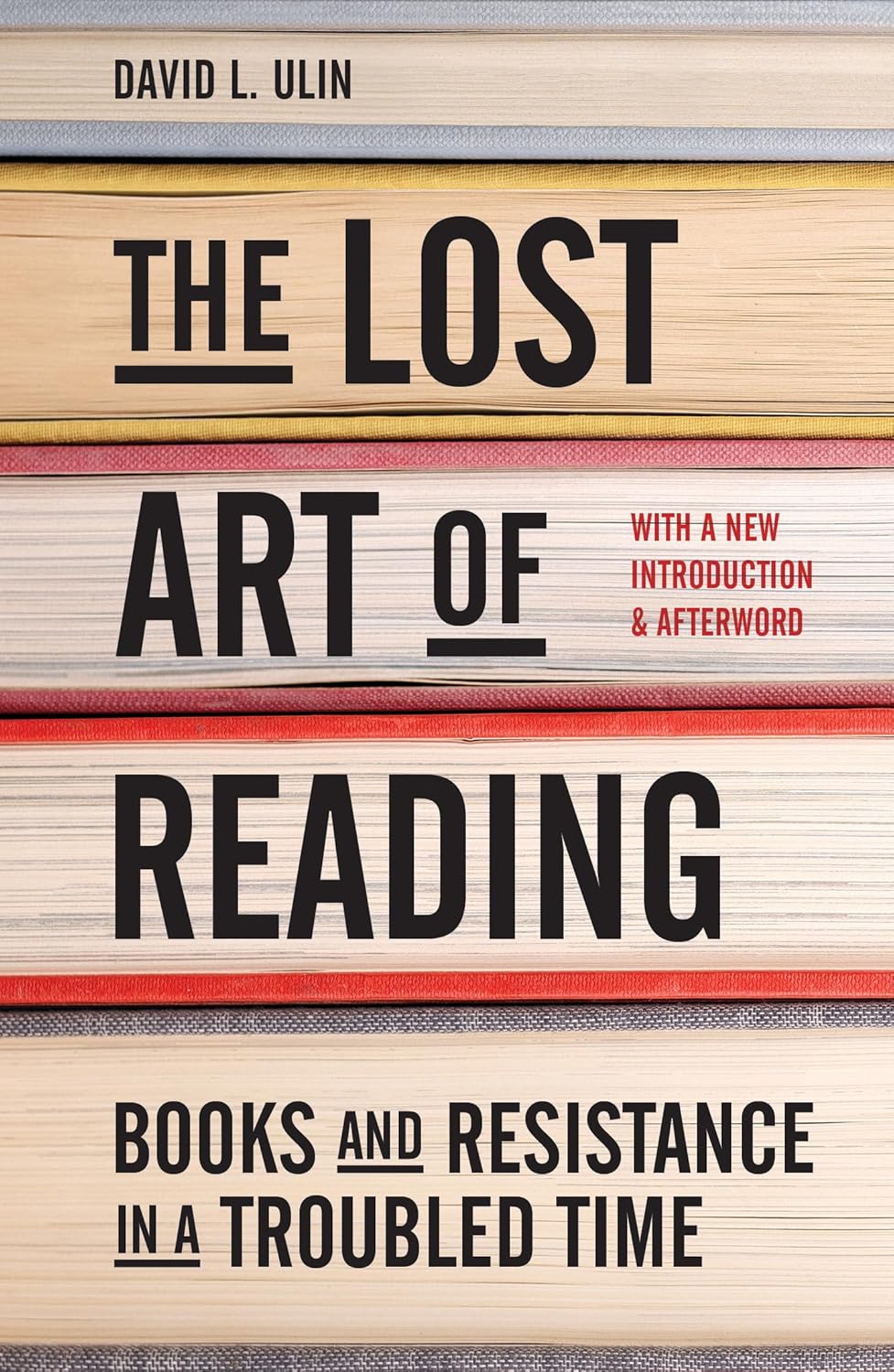Lewis Carroll's Alice reads a marmalade jar's label as she tumbles down the rabbit hole. This scene is a reminder, somehow, that the worst thing about death is that you can't take a book with you.
Dwight Garner, The Upstairs Delicatessen
Most people seem to crave a heaven that offers the best of what they most loved about life, whether that be a certain person, flowers, music or, in the case above, books. But my concern today is less the afterlife than Alice reading the label of that marmalade jar. Does that sound like something you might do while tumbling down a rabbit hole? Or even while sitting at the breakfast table?I may have read my share of marmalade jars and cereal boxes in my time, mostly in my youth, but as an adult reader I believe myself to be a bit more discerning. I don't pay that much attention to labels, other than contents and carbs, or to printed advertisements. Give me a book while I am eating alone, and it had better be a good book. And while tumbling down a rabbit hole, I think I would have other priorities.
For the sake of this blog, however, I decided to read some labels, starting with a cereal box:
Cracklin' Oat Bran — "Each oven-baked, distinctly shaped 'O'-like cluster is packed with the unforgettable flavor of golden oats, coconut, and a touch of cinnamon!"
Analysis — I have long enjoyed this cereal, although it is one of the most expensive brands out there and I don't buy it often. A BOGO deal made it irresistible this time. I hadn't realized it was "oven-baked." The phrase "distinctly shaped 'O'-like cluster" is interesting. When it says 'O'-like, it actually means the cereal consists of rectangle shapes. Why not just say so? Is the flavor unforgettable? I know that the flavor is good, but what is really unforgettable is the wonderful, long-lasting crunch.
PG Tips tea — "Our envelopes are fully recyclable and the plant-based tea bags inside them can be disposed of in your food waste bin, so they can biodegrade into compost and go back to nature."
Analysis — This is a British tea, very popular in Great Britain, but we Americans might wonder, what is a food waste bin? Can you put these tea bags down your garbage disposal?
Ben's Original Ready Rice — "You know us as the brand behind the world's best rice. Now find out how we're making the world better, creating opportunities that offer everyone a seat the table."
Analysis — The world's best rice? Somehow I doubt that, but it certainly is convenient. The rest is essentially an invitation to check out their website. I might be willing to read a food label, but a commercial website? Probably not.
Nature's Bakery Gluten Free Fig Bar — "Our snacks are equal parts wholesome and delicious. From hearty whole grains to sun-ripened fruit, what we bake in is as important as what we leave out."
Analysis — I like this label the best of any of them. It even makes me want to actually open the package and taste one, although I notice it is already six months past the "best by" date. I bought it for the hurricane power outage that never happened.












